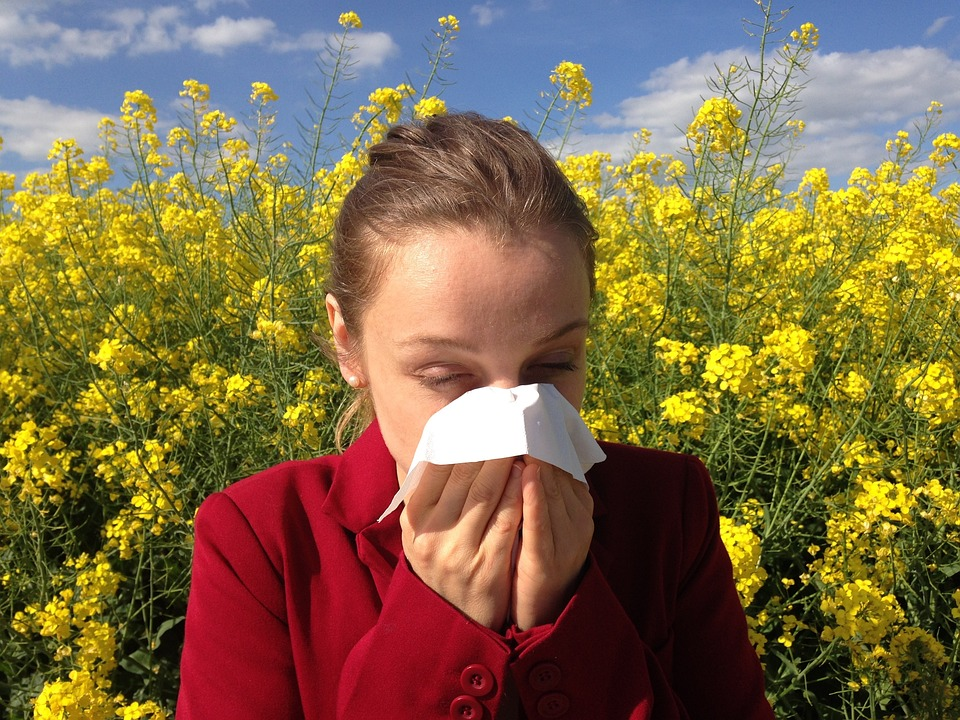What To Do If You Think You're Having An Allergic Reaction

Seemingly harmless substances like types of food, medication, or things in the environment can cause an allergic reaction. When a person comes into contact with certain allergens, it can cause them to develop symptoms that can range from mild and annoying to severe and life-threatening.
In worst-case scenarios, the person may have an anaphylactic reaction, which can result in a drastic drop in blood pressure and breathing difficulty. If the condition is not treated immediately, it can lead to respiratory failure and sudden cardiac arrest.
Let’s take a look at some of the common symptoms of an allergic reaction.
Common Symptoms of Allergies
Identifying an allergic reaction is crucial to getting help and treatment and ensuring your safety.
To understand what is going on, you need to recognize the major symptoms of allergic reactions.
Some of the most common types of symptoms include:
- Breaking out in hives
- Sneezing and watery eyes
- Runny nose
- Skin irritation and peeling
- Rashes
- Swelling around the mouth, face, eyes, or other areas
- Headache and dizziness
- Nauseaand vomiting
- Diarrhea
- Wheezing or breath shortness
- Rapid pulse
If you experience minor allergic reactions like sneezing, runny noses, and skin irritation, then over-the-counter anti-inflammatory drugs, antihistamines, and decongestants can help alleviate the symptoms.
Antihistamines prevent symptoms like hives and rashes, while decongestants will ensure you do not have a runny nose. If you are allergic to certain types of food, over-the-counter drugs can help relieve minor symptoms like itching and hives. You can also treat severe food allergies with epinephrine.

Anaphylaxis or Severe Reactions
In some cases, allergic people can have a very serious reaction, which can result in anaphylaxis. This reaction can occur minutes or even seconds after being exposed to an allergen and can result in breathing failure, cardiac arrest, and loss of consciousness.
Some signs of anaphylaxis include:
- Hives, itching, pale skin, or other skin reactions
- Respiratory distress and wheezing
- Facial swelling
- Headache, dizziness, and lightheadedness
- Fainting
- Fast and weak pulse
It is important to get emergency help if you see someone experiencing an anaphylactic reaction, even if their symptoms seem to improve. It is very much possible that the symptoms may return in the second phase.
Follow the steps to get help.
- Call 911 quickly
- Look for an EpiPen on the person or nearby
- Stay calm and try to calm down the person
- Help the person to lie on their back
- Raise their feet about 12 inches off the ground and cover the person with a blanket
- Turn them on their side if they are bleeding or vomiting
- Loosen their clothing so that they may be able to breathe easily
Benefits of a Telehealth Appointment
Visiting an online doctor for allergies can save you a lot of time and effort and can help you get access to medical care easily and quickly. For example, if you have conveyance issues or cannot go outside for some reason, a telemedicine doctor can help you get the care you need from the safety and comfort of your home.
Getting care from a virtual doctor for allergies may be an effective option if:
- You need a prescription or relief of your anti-allergy medication
- You want to get answers to questions about allergies
- You have concerns or questions about your allergy medication
- You have developed a non-urgent allergy symptom
- You are experiencing a new minor side effect in response to an allergy medication
- You are scheduling a routine follow-up
At TelMDCare, we understand how vital it is to get urgent medical care when you are not feeling well. This is the reason why we offer affordable and low-cost urgent care for people who do not have health insurance and underserved communities.
Schedule an appointment today to get a consultation with Dr. John Ibrahim.